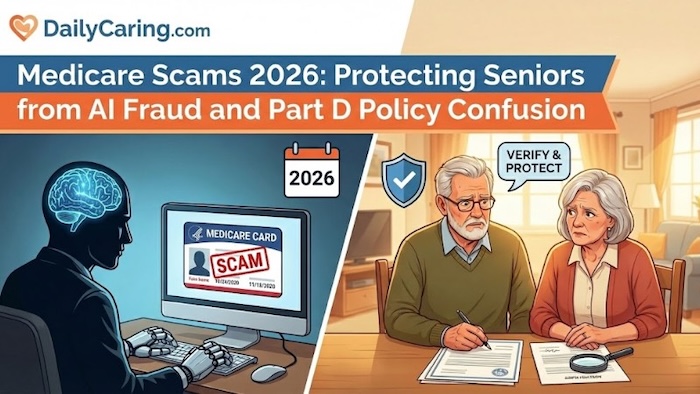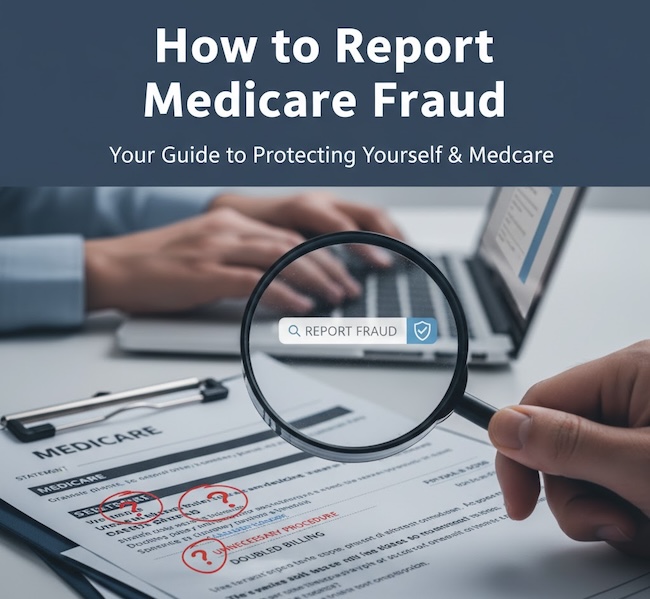Navigating Medicare can feel like trying to decipher a complex code, where a simple misunderstanding could cost you thousands of dollars or leave critical coverage gaps. Many families rely on well-meaning but often inaccurate “common knowledge” passed down from friends or gleaned from confusing advertisements.
These myths can create a false sense of security at precisely the moment you need clarity and confidence the most. It's time to replace misinformation with facts.

Let's debunk five of the most pervasive and costly Medicare myths to ensure your loved one—and your family's finances—are fully protected.
Common Medicare Myths Can Cause Costly Mistakes for Aging Adults
Nearly 66 million Americans use Medicare, but there’s still a lot of confusion about how the program works.
Commonly repeated myths and misconceptions can lead to costly mistakes for older adults.
To help your older adult get their essential health benefits, we share the truth behind 5 common myths about Medicare.
Myth #1: Medicare coverage is automatic once you turn 65
Popular belief: Seniors don’t have to do anything; they’ll be covered by Medicare as soon as they turn 65.
Truth: Not everyone is automatically enrolled in Medicare Parts A and B.
If an older adult doesn’t get a Medicare card in the mail 3 months before their 65th birthday, they need to go and sign up for a Medicare health insurance plan.
Myth #2: Older adults can enroll in Medicare anytime
Popular belief: It doesn’t matter when older adults sign up for Medicare; they can do it anytime, and everything will be the same.
Truth: If older adults don’t enroll during the Initial Enrollment Period, they may have to pay higher premiums later.
Seniors are eligible for Medicare when they turn 65 and after they’ve worked for at least 10 years.
The best time to enroll is during the Initial Enrollment Period, which runs from 3 months before their 65th birthday month to 3 months after it.
Each year from October 15 to December 7 is the Open Enrollment Period. During this time, older adults can also renew, change, or enroll in healthcare and prescription drug plans.
Myth #3: Medicare is completely free
Popular belief: Medicare is a government benefit, so seniors don’t have to pay anything. They’ve already paid for it by paying taxes all their lives.
Truth: Even though a tax-funded trust fund pays for Medicare, people who have Medicare insurance coverage still have to pay monthly premiums and copays, coinsurance, or deductibles for services and prescription drugs.
However, many people can qualify for free Part A premiums if they meet certain conditions.
Also, people with low income may be eligible for one of the Medicare Savings Programs. Under these programs, the state helps to pay Medicare Part A and Part B premiums.
For people who qualify, Medicare Savings Programs might also pay Part A and Part B deductibles, coinsurance, and copayments.
Seniors apply for Medicare Savings Programs through their state. The state will determine which program(s) they qualify for. Even if you don’t think your older adult qualifies, they should still apply just in case.
Myth #4: Medicare pays for everything medical-related
Popular belief: No matter what’s needed, as long as it’s related to health or medical care, Medicare will pay for it.
Truth: Medicare Part A and B cover most hospital and medical expenses.
Medicare Parts C and D cover expenses and services not covered by Parts A and B, such as prescription drugs and other hospital costs.
But even with all those different parts, older adults still have to pay any doctor or facility fees that are not covered.
Myth #5: Medicare & Medicaid are the same thing
Truth: Medicare and Medicaid are two separate programs.
Medicare is for people 65 or older who have paid into Social Security for at least 10 years.
Medicaid is an insurance program for low-income people of all ages that’s operated by each U.S. state.
Some people are eligible for both Medicare and Medicaid, but they must apply for each program separately.
Final Thoughts
Arming yourself with accurate information is the most powerful step you can take to navigate the Medicare system effectively. Debunking these myths isn't just an academic exercise, it's a practical strategy for safeguarding your loved one's health and your family's financial well-being.
You are now equipped to make decisions based on reality, not rumor. Let this clarity empower you to review your current coverage with confidence, ask the right questions during enrollment periods, and ultimately, secure the comprehensive care your loved one deserves.
Your due diligence today is the best insurance against costly surprises tomorrow.
Recommended for you:
- What Does Medicare Cover? Find Out Before the Bills Arrive
- Medicare PACE Pays for In-Home Care
- Get Medicare Advice From State Counseling Programs
About the Author

Connie is the founder of DailyCaring.com and was a hands-on caregiver for her grandmother for 20 years. (Grandma made it to 101 years old!) She knows how challenging, overwhelming, and all-consuming caring for an older adult can be. She also understands the importance of support, especially in the form of practical solutions, valuable resources, and self-care tips.













